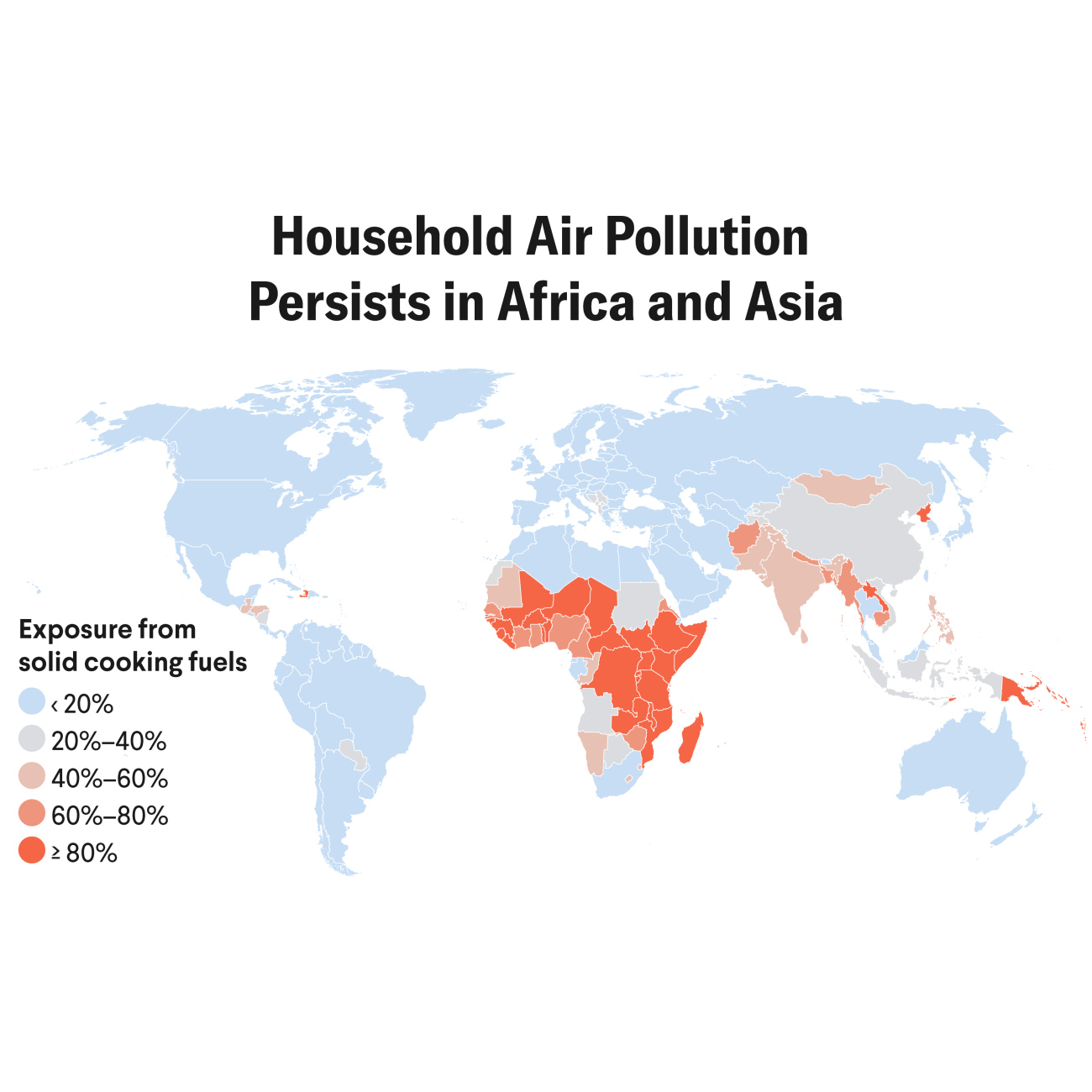Climate change is reversing precious progress made on global health across the African continent.
In southern Africa, higher than usual rainfall has caused pit latrines to overflow, contaminating local water supplies. As a result, health workers in Zambia are battling the country's worst cholera outbreak in decades. The trend in Zambia holds worldwide: 44 countries saw cholera outbreaks in 2022, a 25% increase over 2021. Last year, 30 nations experienced cholera—nine of which recorded more than 10,000 cases.
Although cholera isn't unusual in Zambia, the scale of this outbreak is alarming health-care workers, public health officials, politicians, and the general population alike.
While cases have finally started to decline, more than 20,000 people have been infected and over 700 have died from the disease. Another 4.3 million school-age children have been asked to stay at home because of their symptoms, delaying the start of school by nearly a month.
Outbreaks strain already underresourced and understaffed health systems and can disrupt essential services
Outbreaks strain already underresourced and understaffed health systems and can disrupt essential services, including preventative care, antenatal care, and childhood vaccinations. Alongside the surge in cholera cases, Zambia is wrestling with a 27% increase in malaria cases due to extreme heat, harming maternal and newborn health. And just last week President Hakainde Hichilema declared a disaster over a nationwide drought also due to climate change which is expected to affect nearly 9.7 million people, leading to more disease and malnutrition. Zambia and our world are moving from one crisis to another.
Even though it has been well documented that cholera can be cured by aggressive intravenous fluids and readily available antibiotics when diagnosed early, a lack of adequate sanitation, limited access to health care, and conflict have allowed the disease to endure in many parts of the world. Now climate change is adding additional strain to these outbreaks.
The solutions to climate change's growing threat are clear: make health systems more resilient to outbreaks and develop plans to adapt to a changing climate. The response from Zambia's government and Seed Global Health in collaboration with partners has been swift.
Within 10 days, we reassigned highly trained health workers to the worst affected districts, coordinated supplies of personal protective equipment and other essentials, and supported the training of health workers in diagnosing and managing cholera.
However, this response is still limited by resource and capacity constraints given that Zambia is facing a severe shortage of health-care workers. The outbreak's urgency is also diverting resources from routine health services such as immunizations and prenatal care. The world needs a long-term solution to these challenges. As in many countries that rely on support from foreign assistance, the response in Zambia has undoubtedly saved lives but has not helped build the needed capacity and resilience to meet today's burdens of disease, let alone the growing burdens of the future.
The best response to threats posed by climate change is to mobilize financing for mitigation and adaptation to protect health. Such investments can create clean stable energy sources to power health systems, reduce fossil fuel use through just transitions that immediately improve health, and develop well-trained and distributed workforces to meet the myriad and growing burdens of disease. We need new financing models that prioritize rapidly disbursing funds to the countries and communities most vulnerable to the effects of climate change.
To effectively combat the effects of climate change, countries also need to address the broader causes of poor health
To effectively combat the effects of climate change, countries also need to address the broader causes of poor health. Cholera, for example, like many diseases, is not just a health problem but also a problem of poverty, conflict, lack of access to clean water, poor sanitation and infrastructure, inadequate housing, and education.
When people's lives are at stake, there is no such thing as being too ambitious. Donors, governments, and policymakers need to collaborate across sectors to meaningfully target the social and economic determinants of health.
Rather than react to crises as they occur, countries and their partners need to prepare for them. The COVID-19 pandemic in which millions lost their lives and trillions of dollars were wasted because of poor planning should be a reminder of that.
As major outbreaks become more commonplace and reach historic proportions, such as cholera in Zambia, policymakers and thought leaders should double down and commit to building resilient and sustainable health systems with long-term, meaningful, and flexible funding that supports countries' priorities and plans.


